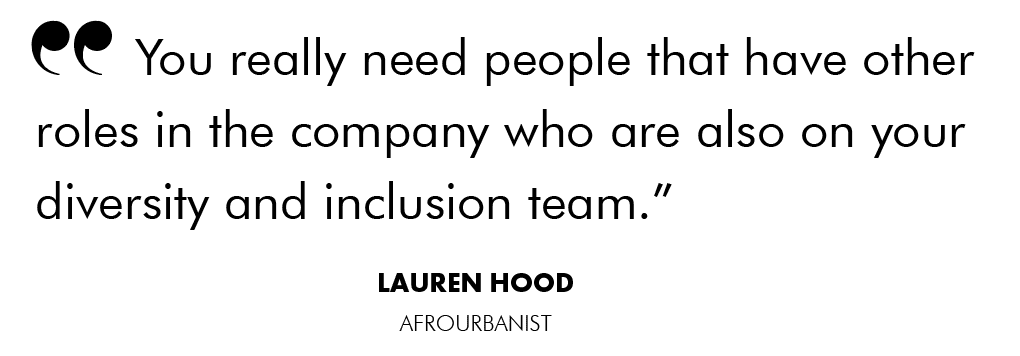How Organizations Can Build a Plan for Racial Equity
October 2, 2020Diversity, inclusion, and belonging are no longer just fancy buzzwords or items on an HR checklist. Two pandemics – COVID-19 and racial inequality – came to a head this year, the former intensifying continued inequalities across healthcare and the economy, while the latter once again brought to the forefront the country’s long-standing history of systemic oppression and racism.
In this environment, companies would be remiss to deny, deprioritize or ignore these issues, because what is happening outside of the workplace is now showing up inside of it.
To work at achieving racial equity, organizations must recognize that it is an ongoing process that needs to be sustained over a long period of time. And it starts with doing an honest assessment about where the company currently stands.

Conduct a Cultural Audit
Lauren Hood, an AfroUrbanist working at the intersection of Black aspiration and city change, facilitates dialogues around race and equity. She describes a cultural audit as a company’s diagnostic tool that should extend beyond simply the number of people of color on staff and in leadership positions. “It should include conversations with current employees at all levels [and] conversation with former employees – people who will speak frankly about what your culture is like,” explains Hood.
The cultural audit doesn’t end there. It also extends to its policies and operations and assessing whether racial equity has been a business priority. “It’s the same way we make other areas business priorities,” says Sumreen Ahmad, global change management lead for Accenture. “We measure them, we track ourselves against progress, we look at where we still have to improve.” From a diversity lens, this can look at how HR is measuring microaggressions or how diversity is factored into hiring, retention, and promotions.
Additionally, Ahmad says that organizations need to consider how different life experiences factor into how someone goes about doing their work, and what’s important to them by way of promotion, visibility and advancement. “If you talk about belonging, have you actually looked deep into your policies, like your paid leave or childcare assistance, to see if they are representative of the diversity of your population?”
After conducting a cultural assessment, Hood suggests developing a racial equity agenda, which she describes as a 10-point plan. To get to this, it will require lots
of conversations.
Build a D&I Team
Companies need to move past the idea that one person is responsible for carrying out their diversity and inclusion initiatives. That person needs a team, says Hood. “I don’t think diversity and inclusion should be separate from all of your other business activities,” she says. “You really need people that have other roles in the company who are also on your diversity and inclusion team.” For example, members of the D&I team can be someone from HR or from the executive leadership group. Ultimately, the team must be integrated into the company, and not an isolated group of people.
Have Uncomfortable Conversations
To achieve racial equity and make a lasting difference within the organization, having conversations that are uncomfortable is non-negotiable. Conversations about race, religion and politics are taking place at work, and true inclusion is creating spaces that are welcoming and respectful of different beliefs, says Ahmad. “It’s not about one single belief system,” she says. “It goes back to good old communication 101 training, which is, what does it mean to actively listen? These are skills that can’t be assumed anymore. They have to be taught.”
Hood also emphasizes the value of providing space for people to share their personal stories of being at the company, as opposed to always defaulting to hosting an anti-racism expert and speaker. “I’ve mostly seen transformation take place in small group dialogue,” she says. •
Brittany Hutson is a freelance writer in Metro Detroit
